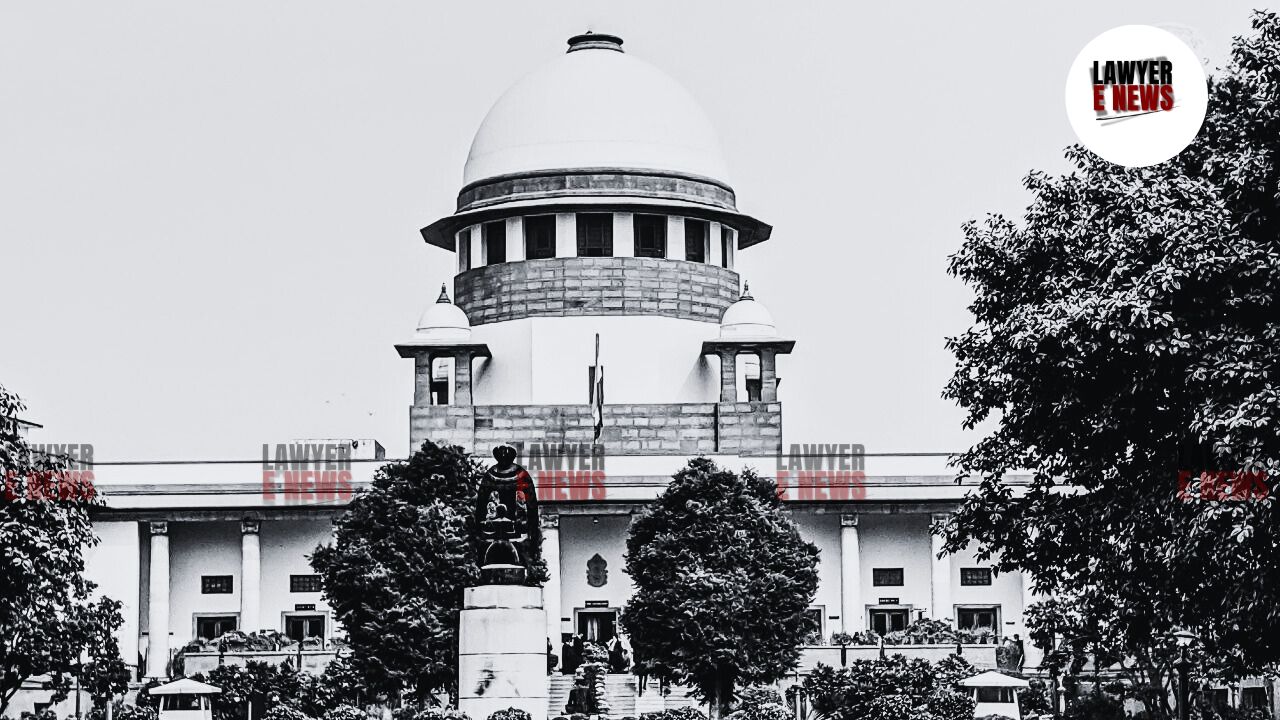-
by Admin
16 February 2026 1:47 PM



“Essential Ingredient of ‘Public View’ Missing – Prima Facie No Offence Made Out Under SC/ST Act” – Supreme Court of India in Deepak Kumar Tala v. State of Andhra Pradesh & Ors., Criminal Appeal No. 1471 of 2025, allowed the appeal against rejection of anticipatory bail in a criminal case involving allegations under the Indian Penal Code (IPC) and the Scheduled Castes and Scheduled Tribes (Prevention of Atrocities) Act, 1989. The Court held that prima facie ingredients for offences under the SC/ST Act were not made out, especially the requirement that a caste-based insult must occur “within public view.”
Justice Pamidighantam Sri Narasimha, delivering the order for the Bench also comprising Justice Manoj Misra, ruled:
“From a prima facie examination of the FIR… there is only one alleged instance of an insult/caste slur but there is no allegation that such offending statement was made in the presence of members of the general public.”
The Court further noted:
“An essential ingredient for attracting Sections 3(1)(r) and 3(1)(s) of the SC/ST Act, i.e., that such statement must be made within ‘public view’… is prima facie not made out from the FIR.”
FIR Alleged Abduction, Threats, and Caste Abuse over Temple Land Dispute
The FIR (No. 69 of 2024, dated 18.04.2024) alleged that the appellant,
Deepak Kumar Tala, along with others, forced the complainant—a Scheduled Caste member—to transfer temple lands. Upon refusal, he was allegedly abducted, confined, and assaulted while being pressured to transfer the land. It was also claimed that the appellant used a castebased slur and told the complainant to “stop reciting prayers.”
The allegations led to registration of offences under Sections 364, 511, 307, 343, 419, 506, 120B, 34 IPC and Sections 3(1)(r), 3(1)(s), and 3(2)(va) of the SC/ST Act.
However, the Supreme Court observed:
“Allegations regarding the appellant’s involvement in the alleged conspiracy… are only inferential in nature, which can be established during trial.”
It was also noted that the parties had a long-standing association, with the appellant and complainant being co-trustees of a temple trust since 2012. Disputes had arisen only in 2017, with civil litigation already pending.
Court Applies Precedents on ‘Public View’ in Caste Offence Cases
The Court applied principles from a line of precedents including:
Swaran Singh v. State (2008) 8 SCC 435
Hitesh Verma v. State of Uttarakhand (2020) 10 SCC 710
Ramesh Chandra Vaishya v. State of UP (2023 SCC OnLine SC 668)
Shajan Skaria v. State of Kerala (2024 SCC OnLine SC 2249)
Referring to Shajan Skaria, the Court reaffirmed:
“An utterance of a caste-based slur, in the absence of public view, does not fulfill the legal requirements for invocation of Sections 3(1)(r) and (s) of the SC/ST Act.”
Anticipatory Bail Granted with Trial Court to Fix Conditions
The Court concluded that anticipatory bail should be granted, stating: “Our prima facie conclusion is that the appellant is entitled to anticipatory bail as per the principles laid down by this Court…”
Accordingly, the appeal was allowed with the following operative direction:
“In the event the appellant is arrested in connection with FIR No. 69 of 2024… he shall be released on bail subject to such terms and conditions as the Trial Court may deem fit to impose.”
It was also clarified: “We have not expressed any opinion on the merits of the matter and that the observations made in our order will have no bearing on the conduct of the trial.”
Date of Decision: March 25, 2025
